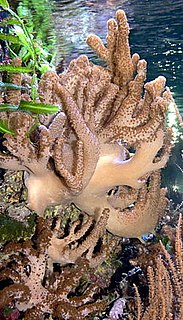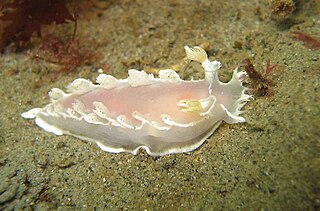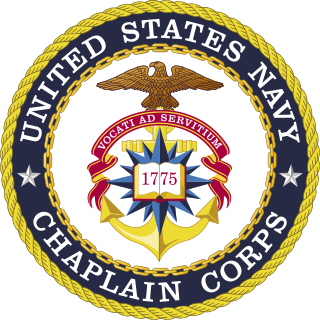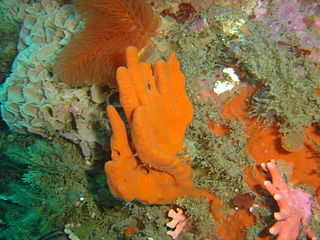| Isodictyidae | |
|---|---|
 | |
| Scientific classification | |
| Kingdom: | Animalia |
| Phylum: | Porifera |
| Class: | Demospongiae |
| Order: | Poecilosclerida |
| Family: | Isodictyidae Dendy, 1924 |
| Genera | |
see text | |
Isodictyidae is a family of marine demosponges. [1]
| Isodictyidae | |
|---|---|
 | |
| Scientific classification | |
| Kingdom: | Animalia |
| Phylum: | Porifera |
| Class: | Demospongiae |
| Order: | Poecilosclerida |
| Family: | Isodictyidae Dendy, 1924 |
| Genera | |
see text | |
Isodictyidae is a family of marine demosponges. [1]
Genera in the family include: [1]
The United States Armed Forces are the military forces of the United States. The armed forces consists of six service branches: the Army, Marine Corps, Navy, Air Force, Space Force, and Coast Guard. The president of the United States is the commander-in-chief of the armed forces and forms military policy with the Department of Defense (DoD) and Department of Homeland Security (DHS), both federal executive departments, acting as the principal organs by which military policy is carried out. All six armed services are among the eight uniformed services of the United States.

Marine Corps Base Quantico is a United States Marine Corps installation located near Triangle, Virginia, covering nearly 55,148 acres (86.169 sq mi) of southern Prince William County, Virginia, northern Stafford County, and southeastern Fauquier County. Used primarily for training purposes, MCB Quantico is known as the "Crossroads of the Marine Corps".
Semper fidelis is a Latin phrase that means "always faithful" or "always loyal". It is the motto of the United States Marine Corps, usually shortened to Semper Fi. It is also in use as a motto for towns, families, schools, and other military units.
In biology, a monotypic taxon is a taxonomic group (taxon) that contains only one immediately subordinate taxon. A monotypic species is one that does not include subspecies or smaller, infraspecific taxa. In the case of genera, the term "unispecific" or "monospecific" is sometimes preferred. In botanical nomenclature, a monotypic genus is a genus in the special case where a genus and a single species are simultaneously described. In contrast an oligotypic taxon contains more than one but only a very few subordinate taxa.

Sea slug is a common name for some marine invertebrates with varying levels of resemblance to terrestrial slugs. Most creatures known as sea slugs are actually gastropods, i.e. they are sea snails that over evolutionary time have either completely lost their shells, or have seemingly lost their shells due to having a greatly reduced or internal shell. The name "sea slug" is most often applied to nudibranchs, as well as to a paraphyletic set of other marine gastropods without obvious shells.

Heterobranchia, the heterobranchs, is a taxonomic clade of snails and slugs, which includes marine, aquatic and terrestrial gastropod mollusks.

Isopoda is an order of crustaceans that includes woodlice and their relatives. Isopods live in the sea, in fresh water, or on land. All have rigid, segmented exoskeletons, two pairs of antennae, seven pairs of jointed limbs on the thorax, and five pairs of branching appendages on the abdomen that are used in respiration. Females brood their young in a pouch under their thorax.

Marine Corps Base Camp Lejeune is a 246-square-mile (640 km2) United States military training facility in Jacksonville, North Carolina. Its 14 miles (23 km) of beaches make the base a major area for amphibious assault training, and its location between two deep-water ports allows for fast deployments. The main base is supplemented by six satellite facilities: Marine Corps Air Station New River, Camp Geiger, Stone Bay, Courthouse Bay, Camp Johnson, and the Greater Sandy Run Training Area. The Marine Corps port facility is in Beaufort, at the southern tip of Radio Island. It is military property but is occupied only during military port operations. In November 2022, It will also be hosting the Armed Forces Classic.

Alcyonacea, or soft corals, are an order of corals. In addition to the fleshy soft corals, the order Alcyonacea now contains all species previously known as "gorgonian corals", that produce a more or less hard skeleton, though quite different from "true" corals (Scleractinia). These can be found in suborders Holaxonia, Scleraxonia, and Stolonifera. They are sessile colonial cnidarians that are found throughout the oceans of the world, especially in the deep sea, polar waters, tropics and subtropics. Common names for subsets of this order are sea fans and sea whips; others are similar to the sea pens of related order Pennatulacea. Individual tiny polyps form colonies that are normally erect, flattened, branching, and reminiscent of a fan. Others may be whiplike, bushy, or even encrusting. A colony can be several feet high and across, but only a few inches thick. They may be brightly coloured, often purple, red, or yellow. Photosynthetic gorgonians can be successfully kept in captive aquaria.

Heteroconchia is a taxonomic infraclass of saltwater clams, marine bivalve molluscs, belonging to the subclass Autobranchia

The Trochidae, common name top-snails or top-shells, are a taxonomic family of very small to large sea snails, marine gastropod molluscs in the clade Vetigastropoda.

The United States Marine Corps (USMC), also referred to as the United States Marines, is the maritime land force service branch of the United States Armed Forces responsible for conducting expeditionary and amphibious operations through combined arms, implementing its own infantry, artillery, aerial, and special operations forces. The U.S. Marine Corps is one of the eight uniformed services of the United States.

The Cladobranchia are a taxonomic clade of nudibranchs, sea slugs, marine gastropod molluscs in the clade Dexiarchia.

Vanikoroidea is a superfamily of sea snails, marine gastropod molluscs in the clade Littorinimorpha. The superfamily Eulimoidea is a synonym of Vanikoroidea.

Freshwater snails are gastropod mollusks which live in fresh water. There are many different families. They are found throughout the world in various habitats, ranging from ephemeral pools to the largest lakes, and from small seeps and springs to major rivers. The great majority of freshwater gastropods have a shell, with very few exceptions. Some groups of snails that live in freshwater respire using gills, whereas other groups need to reach the surface to breathe air. In addition, some are amphibious and have both gills and a lung. Most feed on algae, but many are detritivores and some are filter feeders.

The Chaplain of the United States Marine Corps (CHMC) is a position always filled by the officers serving as Deputy Chief of Chaplains of the United States Navy as a "dual hatted" billet since 2000. The CHMC oversees religious ministry in the Marine Corps which one Commandant of the Marine Corps defined as "a vital function which enhances the personal, family, and community readiness of our Marines, sailors, and their families. Chaplaincy supports the foundational principle of free exercise of religion and helps to enrich the spiritual, moral and ethical fabric of the military."
The brain sponge is a species of marine demosponge in the family Isodictyidae. This sponge is known from the west coast of South Africa to Port Elizabeth. It is endemic to this region.

The flat leaf sponge is a species of marine demosponge in the family Isodictyidae. This sponge is known from the west coast of South Africa to False Bay. It is endemic to this region.

Poecilosclerida is an order of the demosponge class. It is the most speciose demosponge order with over 2200 species. It contains about 25 recognised families. They are characterised by having chelae microscleres, that is, the minute spicules scattered through the tissues, usually in the 10-60 μm range, have a shovel-like structure on the end.

Terrestrial molluscs or land molluscs (mollusks) are an ecological group that includes all molluscs that live on land in contrast to freshwater and marine molluscs. They probably first occurred in the Carboniferous, arising from freshwater ones.